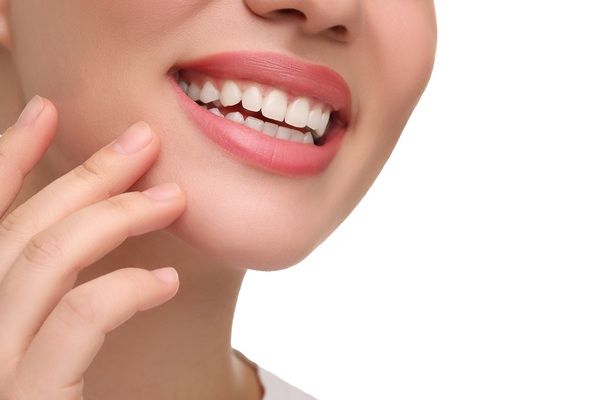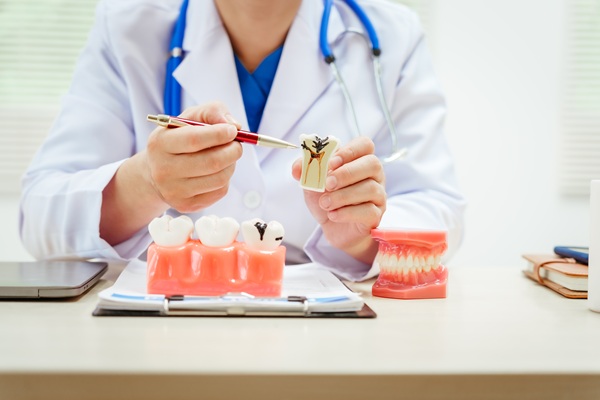How Dental Bonding Can Strengthen Your Teeth

Many patients have dental bonding procedures for cosmetic reasons. However, the treatment is also sometimes used to strengthen teeth that are chipped, cracked, decayed, or have exposed roots.
Dental bonding
Dental bonding is done with a composite resin that a dentist has color-matched to the natural teeth. The dentist roughens the tooth surface and then applies a conditioning liquid before applying the composite resin material to the surface of one or more teeth. The dentist completes the process by shaping or molding the tooth and then hardening the material with ultraviolet light. The dentist may do more shaping after the material has hardened to achieve the desired appearance.
Uses for dental bonding
Dental bonding can be used to treat several conditions:
- Chipped teeth
- Discolored teeth
- Spaces between teeth
- Misshapen teeth
- Teeth that appear undesirably short
- Alternative to amalgam fillings
- Protection for exposed tooth roots
Benefits of dental bonding
Dental bonding procedures can usually be completed in one visit. The procedure requires less enamel to be removed from the teeth than alternative procedures, such as veneers and crowns. When used to fill cavities, it strengthens the tooth while also providing a more natural appearance than metallic fillings.
Risks of dental bonding
The resin used in dental bonding procedures is not as strong as healthy natural teeth or the materials used to manufacture other restorations, such as veneers, crowns, and fillings. It may chip or break. Patients can reduce these risks with proper care. Dentists often mitigate the risk of damage by reserving the treatment for teeth that experience low bite pressure.
Care for bonded teeth
The material used for dental bonding can stain. Avoiding substances that are prone to causing stains, such as coffee, tea, wine, and cigarette smoke, can reduce the risk of stains occurring. An oral care routine that includes twice-daily brushing, flossing once per day, and regular dental visits can extend the life of dental bonding.
Additionally, patients are advised to avoid chewing on hard objects, such as ice, pens, fingernails, nuts, and hard candy. Wearing a mouthguard when playing sports can protect against impact damage. A nightguard can prevent damage from teeth grinding during sleep. Rinsing with water after eating acidic foods can also be protective.
Lifespan of dental bonding materials
Most bonding materials need to be replaced or touched up after three to 10 years. However, the length of time depends on how well the patient cares for their teeth and the extent of the bonding that was done.
Conclusion
Dental bonding is a useful dental treatment for simple repairs of damaged teeth in parts of the mouth that experience low bite pressure. Due to the chance that the material could chip or break, the procedure is recommended for patients who are willing to take measures to protect their dental work from stains and other types of damage. Patients who are unwilling or unable to modify their lifestyle to protect the dental work may want to consider alternative treatments.
Request an appointment here: https://www.drbohan.com or call Heather Feray Bohan, DDS, PA at (281) 864-1581 for an appointment in our Tomball office.
Check out what others are saying about our dental services on Yelp: Dental Bonding in Tomball, TX.
Recent Posts
Dental bonding is an efficient way to restore the appearance and function of teeth. Your cosmetic dentist can use this to repair any damage, discoloration, or decay. Cracked, chipped, broken, or stained teeth can look new. This type of treatment can also close gaps between teeth. If you want to know how dental bonding works…
If you have gapped teeth, dental bonding can be an option to restore your smile. It is a cosmetic dental procedure that uses composite resin materials to transform the teeth’s appearance. Dental bonding can correct not only small spaces between teeth but also other flaws like discoloration and minor tooth decay, cracks, or chips. It…
Everyone wants to have a nice smile. However, many people have imperfections that interfere with confidence. dental bonding is a procedure that can help fix several issues, and it is relatively non-invasive. There are a variety of methods that can improve smiles, and it is good to have a better understanding of each one.Dental bonding…
There are some cases where a stained or chipped tooth can be fixed with dental bonding or contouring. While these issues can be more severe and so require a different solution, something like an uneven edge or unsightly spot can often be treated without more invasive procedures that can affect the entire mouth.This procedure enhances…


